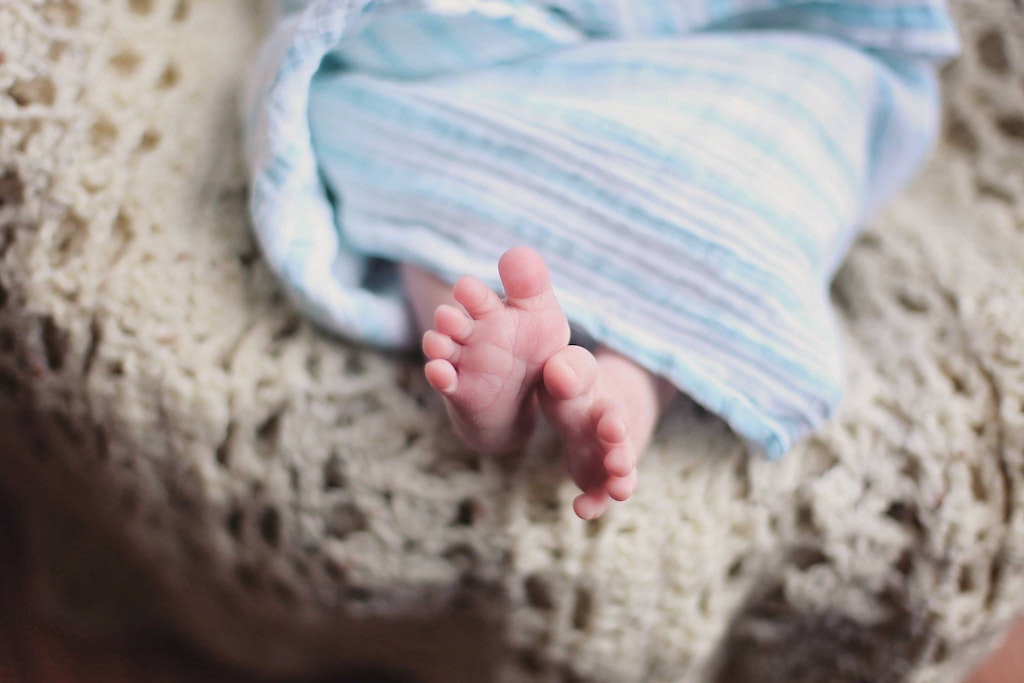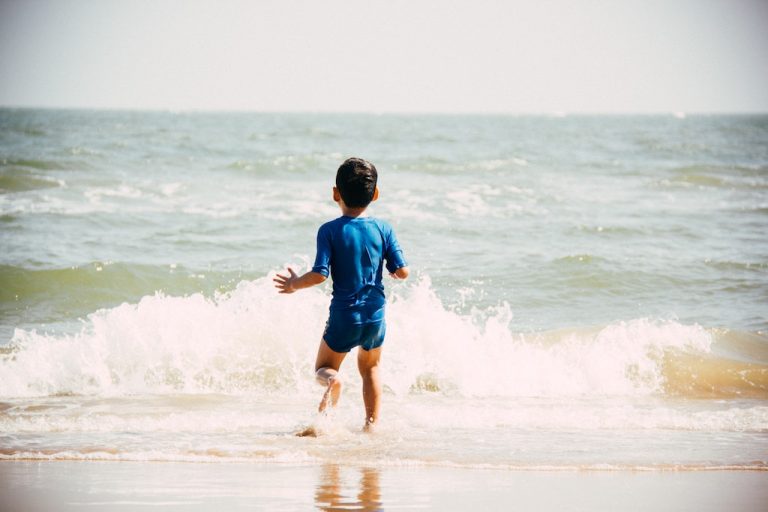SingaporeMotherhood | Baby & Toddler
August 2018
Male Circumcision in Singapore: When your Son needs the Cut

Male circumcision is not uncommon in Singapore . But what does it really involve and how do you know if your son needs it? Dr Joyce Chua, Specialist in Paediatric Surgery & Consultant, Raffles Children Centre, sheds some light.
Circumcision. It’s a word that makes grown men shudder and if your son has to do it, you probably will (shudder) as well, mum. The SingHealth website describes circumcision as “the world’s oldest operation” and “one of the most commonly performed operations”.
Indeed, the procedure, which involves a cut in one of the most sensitive parts of the male anatomy, is de rigueur for Muslim and Jewish boys. Outside of religion, boys may undergo circumcisions for medical reasons. In Singapore, circumcision is indeed the most common surgical procedure performed amongst our local boys. An article in the Today newspaper, quoting the Ministry of Health, states that there were 1,921 adult and child male circumcisions between July 2016 and June 2017. This figure may however not include circumcisions performed by private general practitioner clinics and also circumcisions performed by non-medical persons and / or religious leaders.
[banner][/banner]
How can you tell if your child needs circumcision?
When a boy remains persistently phimotic despite phallus growth, doctors may discuss the possibility of a circumcision. Phimosis refers to a persistently tight prepucial opening where the prepuce (foreskin) cannot retract over the glans penis. The tight prepucial opening traps urine between the glans penis and the inner prepuce and this can lead to recurrent infections of the prepuce and glans penis – balanoposthitis (inflammation of the glans, the rounded head of the penis).
When this happens, your doctor may recommend treating the phimosis with sustained daily retraction and topical steroids. Together, these can free prepucial adhesions and widen the prepucial opening, hence allowing the foreskin to slide easily over the head of the penis. When your child fails to respond to topical steroids and retraction exercises, then a circumcision may be warranted.
Recurrent episodes of balanoposthitis, particularly if every episode requires oral and topical antibiotics, is another medical indication for circumcision.
If your child’s prepucial opening remains persistently tight as he approaches puberty, he may be at risk of para-phimosis. Para-phimosis is an acute emergency. It refers to a situation where the foreskin is retracted behind the crown of the penis, usually during a penile erection; and cannot be reduced back over the glans penis. It is a very painful condition as the tight prepuce forms a constrictive ring around the glans penis. The foreskin will need to be urgently reduced back over the glans penis. Often, a circumcision is recommended to prevent a recurrence. In fact, an urgent circumcision is sometimes required when the foreskin cannot be successfully reduced over the glans penis.
(See also: Circumcision: to cut or not to cut?)
What’s the best age to have circumcision?
There is no best age per se. The question to first ask should perhaps be — is a circumcision necessary? If your family desires for all male offsprings in the family to be circumcised – whether for religious / cultural / social reasons – then doing the procedure earlier in childhood may make it easier for you to care for your child after the procedure. This is because the prepuce and phallus are less developed and postoperative healing tends to be less eventful. A Plastibell circumcision can be easily performed under local analgesia for newborns and young infants. The procedure is not too uncomfortable for an infant, the downtime is shorter, and the infant should not have any recollection of the event.
If the parents cannot decide if their male child should be circumcised, then they should preferably be guided by the medical indications for the procedure.
The penis is after all a sexual organ and capable of erections. Penile erections following a circumcision stretches the circumcision wound and the young man therefore experiences more pain and discomfort following a circumcision compared to his pre-pubertal counterpart. Hence doctors recommend that if the circumcision is medically warranted, it should preferably be completed before the onset of puberty.
What is the expected healing time after circumcision?
Most boys will experience some degree of discomfort the first five to seven days after circumcision. It is the raw glans penis that causes most of the discomfort; not quite the circumcision suture line per se.
All boys will develop scabs over their glans penis after the circumcision. Once the scabbing process is stable (even though the wound may not appear to have fully healed) the boys are usually happy to be in loose boxer shorts. They can also return to school by the end of the week. The circumcised penis will take on its eventual healed appearance between two and four weeks after surgery.
How do you prevent infection after the procedure?
It is uncommon for circumcision wounds to really get infected. You may see extensive scabbing and a yellowish weepy appearance over the glans penis after the procedure but this does NOT signify infection. It is merely part of the healing process after the procedure. Some surgeons give a short course of antibiotics during and after the procedure. All surgeons will prescribe a course of Sitz baths (soaking the penis in salt water) and topical antibiotic ointment. Most clinics will have in place the surgeon’s preferred post-operative care and advice for patients to follow after circumcision.
What are the pros and cons of circumcision?
A circumcised penis will have the glans penis exposed. There is therefore no “space” per se for urine to collect between the glans penis and the inner prepuce. To some people, this looks “cleaner”. The covered glans penis is usually exquisitely sensitive in the freshly circumcised penis. With time, the glans will become less sensitive. Therefore, an exposed glans penis has been described to be associated with diminished sexual sensation. In addition, circumcision is an irreversible procedure and the skin that has been removed cannot be replaced. Finally, the procedure will require at least intravenous sedation or general anaesthesia in older boys, and exposure to these anesthetic agents is associated with their own inherent risks.
Will circumcision affect my child’s genital growth after puberty?
No. Circumcision refers only to removing part of the prepuce. There is no manipulation of the penis or the rest of the genitalia.
To learn more about Raffles Children Centre or make an appointment with a paediatrician, visit: https://www.rafflesmedicalgroup.com/specialist-centres/services-by-centre/children
Expert Resource
Dr Joyce Chua obtained her basic medical degree from the National University of Singapore in 1998 and became a Member of the Royal College of Surgeons, Edinburgh in 2001. She went on to pursue a 5-year advanced surgical training program in Paediatric Surgery with the Department of Paediatric Surgery at the KK Women’s and Children’s Hospital. Dr Chua has worked in the Children’s Hospital of Philadelphia and completed a Fellowship in Paediatric Surgical Oncology at the Memorial Sloan Kettering Cancer Center in New York. Prior to joining Raffles Hospital, Dr Chua managed neonatal and paediatric surgical conditions at KK Women’s and Children’s Hospital and the Neonatal Unit in Singapore General Hospital. In 2014, she was awarded the Singapore Health Quality Service STAR Award in recognition of her dedication to the care of sick children and their families.
Stay connected with Raffles Medical Group (@rafflesmedgrp) on Facebook, Twitter and Instagram.
Header image: Source
Featured image: Leah Kelly
All content from this article, including images, cannot be reproduced without credits or written permission from SingaporeMotherhood.
Follow us on Facebook, Instagram, and Telegram for the latest article and promotion updates.









